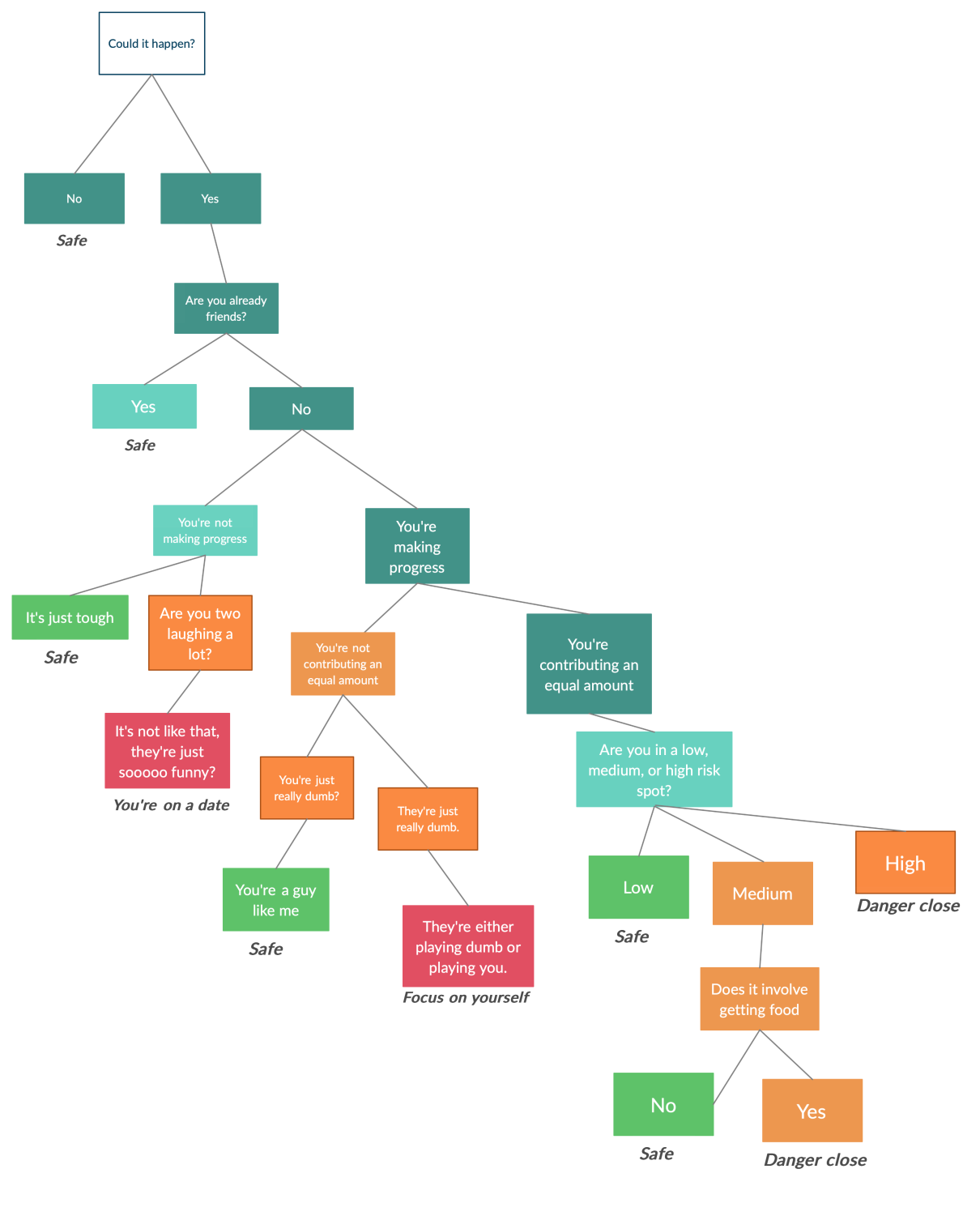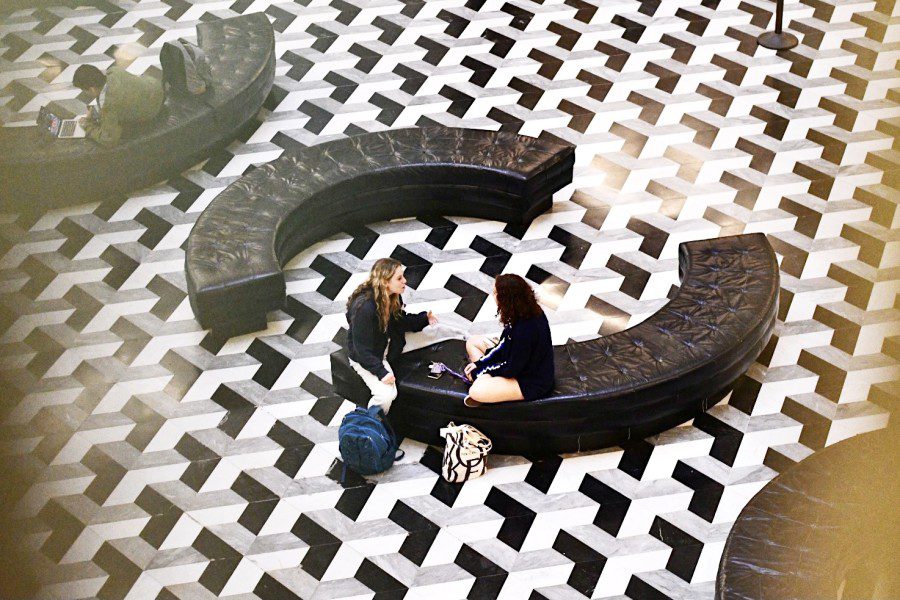How to know if you’re going on a study date or a date-date
Here’s the not-so-scientific method of figuring out whether or not it’s time to love or grind.
October 5, 2022
Yesterday, my friend came over after studying in the library with a guy from her class. They pulled out their books pursuing knowledge, but their heads stayed up, and they spent the afternoon learning about each other instead. Not knowing what she had taken part in, my friend didn’t know how to proceed — she had been taken out on a date.
While study sessions are a casual introduction into what could be a more serious relationship, sometimes only one party understands the stakes. Your buddy is wearing his worksheet thin, drawing and erasing the same doodle, thinking of the next thing that’ll make you laugh. Conversely, you’re clueless.
I know what you’re thinking: “What the hell, can’t I cheat on my statistics midterm in peace?” Of course you can! And you can avoid any unintended consequences by seeing the signs of an academic-gone-romantic and responding appropriately. If you’re the academic-gone-romantic — don’t worry — I’ll still help you. Just do all the don’ts.
So, what is a study session? What is a study date? Where do they overlap? When does the session become a date?
A study session is when, after contact info is secured, you and someone from your class go to a secondary location — library, park, cafe, etc. — to work on something from the class. If you don’t take the same class, for our purposes, it’s not a study session; you’re just hanging out. Nothing wrong with that.
Even the most ideal study session can quickly turn into a study date. It relies on two main factors:
- Do you know each other well? If not, is the other person attracted to girls, and are you a girl? Not always that specifically, but you get the point.
- The other factor that increases the risk is location. Low-risk areas are Bobst Library or any other study spot on campus; these tend to be sterile environments. Medium-risk areas are outdoor workspaces and off-campus parks. High-risk areas are cafes, dorms and apartments. But keep in mind, if “I know a nice spot” is among the language used in organizing the session, you’re likely going into a date.
This flowchart will help you discover if what you’re going into is a date or not.

You’re not helpless, though. If you feel like your study session is slipping into study date territory, you can always bring it back. All you have to do is mention inviting a friend. Said friend doesn’t have to actually come or even exist. By mentioning someone else, you’re reminding your classmate that you’re not on a date without even saying it. It really works! Try it.
So, if you’re ever stuck in study-date limbo, don’t immediately start overthinking or playing mind games with yourself and hopefully my advice will help you get what you want out of that one-on-one encounter.
Contact Charles Roth-Douquet at [email protected]
























































































































































